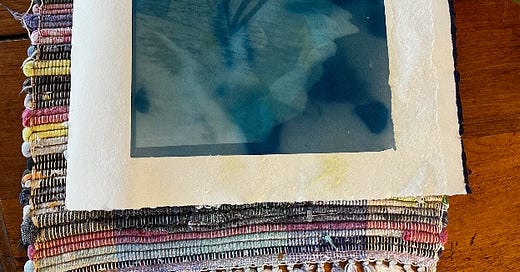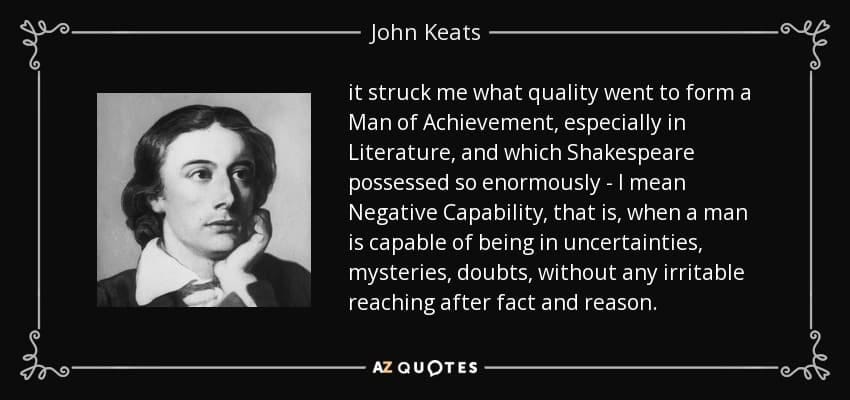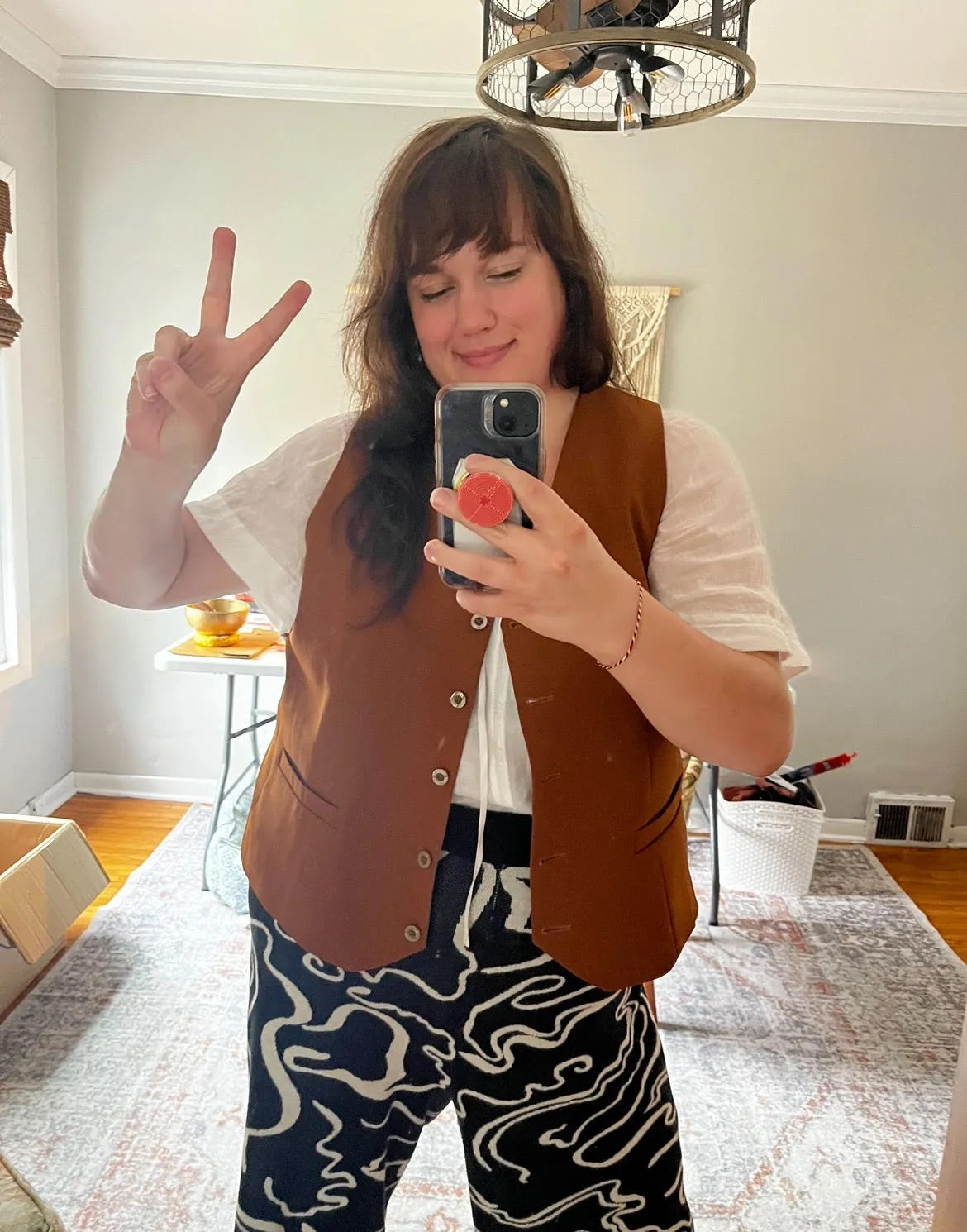Contradiction, negative capability, and equipoise ⚖️ / lyric threads lab: week 4
Using the astrological houses to craft a catalog poem, re-collecting events of loss and gain to fold together
Follow along for the next 4 weeks as the first lyric threads lab discusses, writes, examines, and de-constellates lyric poetry and lyric essays. We will practice writing in new ways. We will offer transformative responses to one another in an intimate container. Here, on Substack, I (the guide, the host, the gardener) will detail what we discuss for you and share our generative writing activities.
🌩️ lyric threads lab [the cloud cohort] 🌩️ Week Four:
To prepare for this week’s session, the cloud cohort is reading Ross Gay’s Catalog of Unabashed Gratitude — a collection of poems that hold together contradicting or challenging emotions. There’s loss and growth. There is fear and hope. Ross Gay demonstrates a skill every poet would benefit from cultivating: negative capability.
In an earlier post, I talked about my MFA cohort’s workshop dynamic. Though so much joy has been brought into my life through the people I met through these workshops, I felt an overabundance of black and white thinking. And I am aware that my shadow was projecting onto the surfaces of this group. What I saw was varying degrees of emotional quotient and a general unwillingness to practice negative capability, at least interpersonally.
Negative capability is the ability to accept uncertainty, doubt, and mystery without seeking immediate answers or explanations.
I saw negative capability as a skill one could (should) cultivate, and a skill I wanted to develop in myself. I understood through my hypnotherapy / subconscious mind coaching training led by
that the subconscious mind takes personally each judgment made. For example, if I am judging my cohort’s inability to hold opposing ideas without “irritably reaching after fact and reason” or decision, then it was clear that parts of me, too, had difficulty with this.In poetry, negative capability looks like holding together all the tangles and elements of what you’re writing about — and not deciding on the result or message or lesson of what you write. It’s writing through and with the doubt, of not knowing if you are morally correct though you know what you’re feeling and sensing is true to you. With negative capability, a poet can place their consciousness inside of anyone of anything. A poet exercises the state of unknowing as much as possible.
It is in the gap of contradicting ideas where poetry bursts forth.
In the real world, negative capability looks like indecision, no? This looks like a person without clarity or reasonability. If you were on a team of poets with the goal of launching a marketable product, a successful result may be hard to come by. Or…. the team of poets would have an incredible sense of the user’s experience. I don’t know. I was going to argue that negative capability is not incentivized “in the real world” but I truly believe this skill leads to more intuitive, more loving, and wise decision making, even if making a decision is not the skill being developed here.
Okay, but I argue with myself again: practicing negative capability would look like a room full of people discussing an issue or a solution for hours… for days… for…
But negative capability is the humane task.
Equipose and the Catalog Poem
I am inspired by Victoria Bee’s post Libra I: Libra and Bisexuality and the 2 of Swords through The Astrologers’ Co-Op, wherein she writes about equanimity. And while reading this, I am reminded of the word equipoise (a word that is as Libran as they come, no?).
Writing poetry is my personal practice in cultivating equipoise.
With writing, I develop more capacity in my heart for other people. I challenge myself to swing between the extremes of experiences — not to decide on the middle or the exact balance, but to build my ability to hold and behold many different consciousnesses.
I think of the catalog poem as an exercise in equipoise: giving equal weight to many items, experiences, or things. Of course, I wanted to talk about Ross Gay’s book and poem of the same title “Catalog of Unabashed Gratitudes” as an example for this.
But I’m also thinking about Brenda Cárdenas’ Because We Come From Everything and Chen Chen’s When I Grow Up I Want to Be a List of Further Possibilities as examples of the catalog poem that exhibits negative capability.
From The Poetry Foundation — taking stock of the Catalog Poem:
“A catalog poem includes or consists of the enumeration of things, people, places, feelings, actions, ideas, etc.
Catalog often uses the practice of listing, a collection of a series of linked items, but allows for more description, digression, and thematic development of both the individual items and what binds the individual items into a whole.
Often, catalog reveals likenesses between seemingly unrelated details, referents, contexts, sounds, etc., or challenges commonly accepted systems of definition and classification.”
I love the word “reveal” in this description of the catalog poem. Yes, connecting all the items in a catalog gives space to reveal their likenesses, contradictions, pains, pleasures, and all.
Writing Prompt for Week Four:
The generative writing prompt for this week uses the framework of “houses” in astrology to conjure up contradicting experiences in 12 areas of our lives. Then, after 24 (or more) experiences have been re-collected, each writer will be asked to write a catalog poem, inspired by Ross Gay’s poem “Catalog of Unabashed Gratitude.”
For each of the following “houses” — tell us two things. Tell us like you’re speaking to us. Like you need us to know about these events.
First Step: what is an event you have witnessed firsthand here that has given you joy, hope, freedom, or wellness?
Second Step: what is an event you have witnessed firsthand here that has caused you harm, pain, fear, or loss?
House 1: This is the house of the self. Your body. Your choices. Your personality. How you present yourself. How your individual life changes and molds the people around you. This is the house of your life as impetus for all that you do and create.
House 2: This is the house of the material world. What do you surround yourself with? What skills and talents do you develop? How do you feel about your life and your physical surroundings. What are the themes that surround your physical and material existence?
House 3: This is the house of the ritual. Of the neighborhood. Of siblings, aunts, cousins. Of how you learn, how you write, how you receive and share information. This is your early childhood development — in settings where peripheral people are: teachers, other pupils, secretaries, aides.
House 4: This house holds your origins. Where you come from and where you return to. How you were raised. What makes you feel secure enough to really feel. What makes you feel safe enough to be yourself. Where you go for refuge. What feels like home.
House 5: This is the house of creating yourself. Or creating things. Or creating people. This is the house for self-actualization and cultivating a life worth living. This is the house for all that we do outside of commerce, and for ourselves.
House 6: This is the house of physical health and labor. Here, we see what our conditions are. Here, we sense where we feel well and appreciated for our work. In this house we see what may make us ill and what might relieve illness. This is also the house of service, of giving yourself up for a cause or an effort.
House 7: This is the house of partners, of people who are mirrors to us. Of how we interact with others. This is the house where we begin to practice togetherness, merging, sharing. Here, we experience life with an other. Here, we become a partner.
House 8: This is the house of the intangible. What we cannot see or touch but know is present. Here, we exchange energy. Here, we do not have control over what is not ours. Here, we are asked to surrender. Here, we practice trust or mistrust.
House 9: Here is the house of god — but it is god as the unknowable. God as the one we quest after. Here, we travel to find ourselves. Here, we experience what is not us so that we can better understand what is. Here, we study. We discuss. We question.
House 10: This is the house of our greatest effort. Here, we are the most visible. Here, we are known before we are seen. Here, we cultivate a reputation or a career. How have you been “out in the world” the most? What occurred when you were most visible?
House 11: Here, you find your support. You weave your web. You connect with and collect like minded people. Here, you make wishes. You are a part of a whole. You are a part of the systems that make up the world.
House 12: This is the house of fluidity, of lack of clarity, of dissolving back into the world. Here, you seek refuge. You isolate to regain life force. You learn without language. You learn through dreams. You process wordlessly. You are without form here, or your form begins to shift. This is the house of understanding your consciousness is a part of all consciousness.
Then: Using some or all of these events, collect them in a catalog of experiences that circle around the key themes, emotions, breakages, or re-emergences you see present as patterns across them.
I’d love to see your poem! Send to me directly or as a comment on this post <3
Coming Up / On-looking:
Two years ago I started a daily writing thing called Poemvember. I’m watching the videos back and loving watching past me collect my favorite poems and create writing prompts inspired by them. Here’s November 14th’s: Antler the Poet’s “Babyteeth Necklace.” I don’t know if I have the space or energy for hosting Poemvember again this year, but I’d love to hear if any of you would be interested in co-creating a Poemvember 2024 experience.
The Solar Eclipse in Libra occurs next Wednesday afternoon (October 2). This eclipse window has been personally and peripherally disruptive — and, also, revelatory. I am looking forward to the energy loosening up a bit but am practicing gratitude for the stability I do have in my life. In at least a few houses of my life. How has this eclipse season felt for you? What has dropped off? What has “entered the chat”?
For those in the Wisconsin area, on October
and Sevan Arabajian are hosting the final candle-lit labyrinth walk and sound bath of the season at Lynden Sculpture Garden. More details here.The cyanotype experiment didn’t go as planned, but that’s the point, no? I’m planning on testing out a few more this weekend after learning how the type of paper, amount of solution on the paper, and amount of time in direct sun affect the outcome. Here’s one that turned out well enough! A print of my “I am a vessel of love” sigil on top of a photo of the shoreline:
KP Kaszubowski (she/her) is a poet and filmmaker. Her debut poetry collection “somnieeee” was published in 2019 by Vegetarian Alcoholic Press, and her debut feature film “Ringolevio” premiered in 2020 at Dances With Films in Los Angeles. As narrative designer and producer, her first feature length documentary “My First and Last Film” (director: Tracey Thomas) premiered in 2019. Her previous poetry has been published (as Kristin Peterson) by TriQuarterly, pitymilk press, Great Lakes Review, dancing girl press, Juked, ICHNOS, and elsewhere. She earned her MFA in Creative Writing through Eastern Washington University in 2023. KP Kaszubowski is also a practicing archetypal and ancient astrologer. In her practice, she seeks the patterns in her clients’ charts for affirming and life-enriching pathways. She lives close enough to the Lake to pretend she can hear it. When she lived in Spokane, she could hear Lake Michigan there too.













